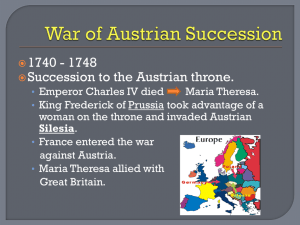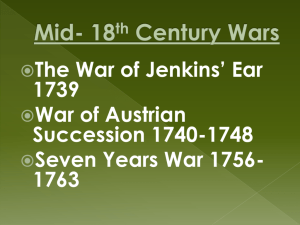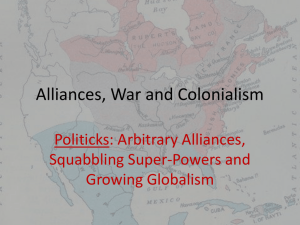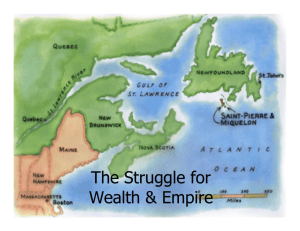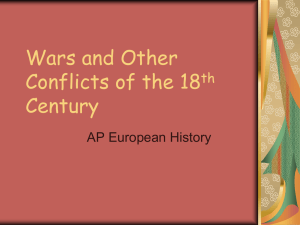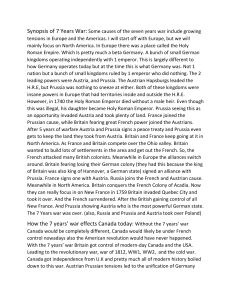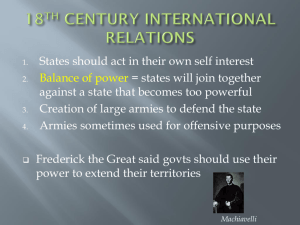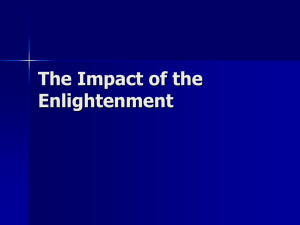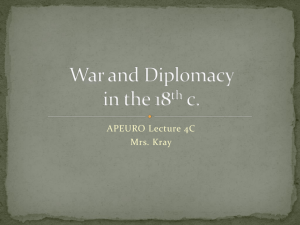The American Revolution
advertisement
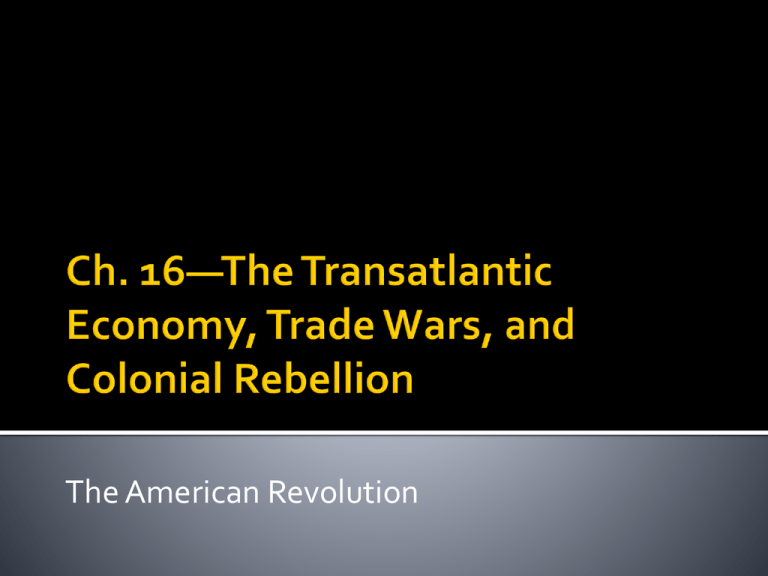
The American Revolution 2003 AP European History Exam (Form B) Free-Response Question—Part C, Option #2: Explain why Europe saw no lasting peace in the period between the Peace of Westphalia in 1648 and the Peace of Paris in 1763. Impact of the Treaty of Westphalia (1648): The ruler of a land would determine the official religion of that land. Recognized the independence of the Swiss Confederacy France became Europe’s dominant power Spain and Germany were weakened Austria and Prussia would rise in power “Firmly established the competitive nationalism of the modern world.” (Ch. 12—page 413) Europe in the mid-18th century: “The statesmen of the period generally assumed that warfare could further national interests. No forces or powers saw it in their interest to prevent war or maintain peace.” (Ch. 16-page 532) Conflicts were fought between professional soldiers—rarely impacted civilian populations. The War of Jenkins’s Ear (1739) Britain vs. Spain Fought over trading in the West Indies The War of Austrian Succession (1740-1748) New Prussian King Frederick II (the Great) invaded Silesia of Austria, shortly after Maria Theresa became Queen of Austria. Austria’s main ally was Great Britain Prussia’s main ally was France The War of Austrian Succession ended in 1748 with the Treaty of Aix-la-Chapelle. Prussia retained Silesia Maria Theresa remained Queen of Austria, but granted Hungary autonomy. France and Great Britain continued to fight in North America (The French and Indian War). The “Diplomatic Revolution” of 1756 Great Britain and Prussia sign a defensive alliance. France and Austria respond with their own defensive alliance. The Seven Years’ War (1756-1763) Begins when Frederick the Great invades Saxony. The French-Austrian alliance expanded to include Sweden and Russia. The Seven Years’ War (con’t) Great Britain’s involvment in North America William Pitt the Elder The Treaty of Paris (1763) Expansion of the British Empire in North America Impact in Spain Economic Impact throughout Europe British problems after the Treaty of Paris—1763 British solutions Colonial responses American Political Ideas John Wilkes European Impact of the American Revolution
